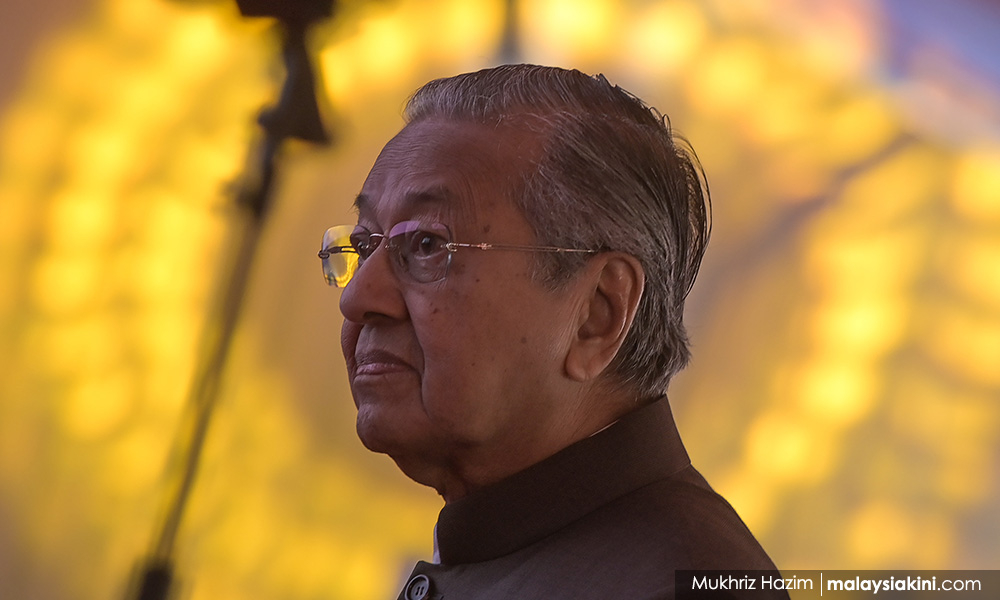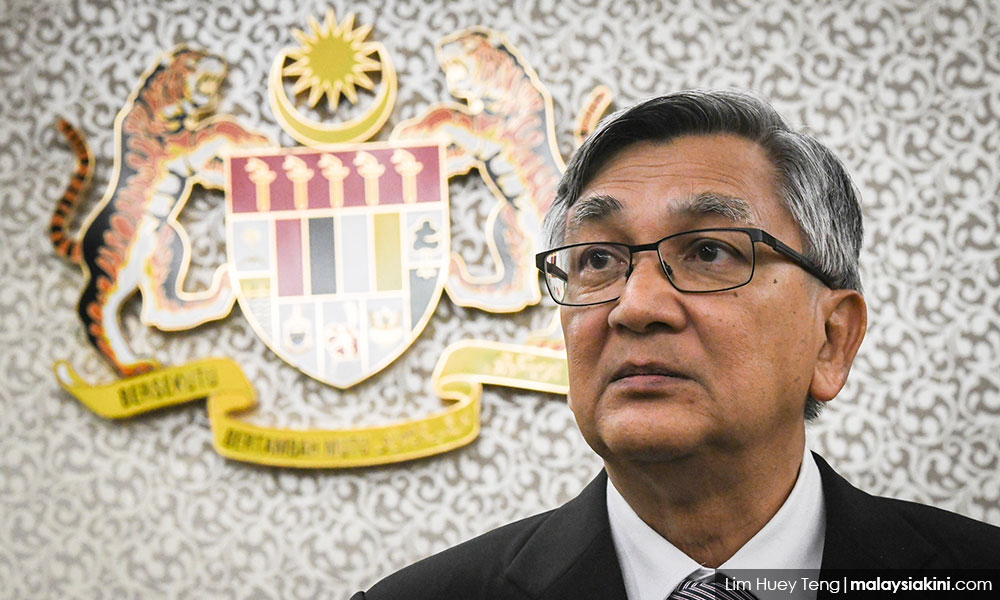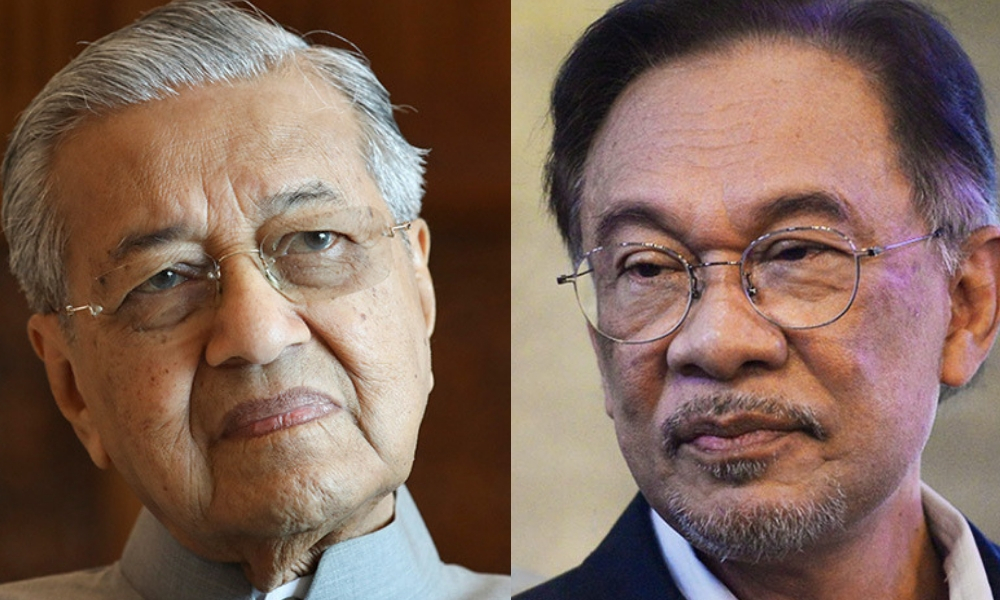
Former Prime Minister Dr Mahathir Mohamad has exonerated himself from causing the collapse of the Pakatan Harapan coalition government through his sudden resignation.
He also claimed that he had remained loyal to Harapan and rejected the formation of the all-Malay coalition of Umno-PAS-Bersatu to take over the reins of government from Harapan.
In a brief article titled “My resignation as prime minister” published by Malaysiakini on July 17, he said, I quote:
“Strictly speaking, when Bersatu left Harapan, the coalition ceased to be the government. This meant that all members of the cabinet lost their ministerial positions. This included me. I had lost my position as prime minister. Resigning was only a formality.”
So, according to Mahathir, the Harapan government automatically collapsed the moment Bersatu withdrew from the coalition, and his resignation as PM was immaterial to the fall of Harapan.
Is this correct? No, it is not. And the answer is provided in a nutshell in Article 43(4) of the Federal Constitution, which I quote in full:
“If the Prime Minister ceases to command the confidence of the majority of the members of the House of Representatives, then, unless at his request the Yang di-Pertuan Agong dissolves Parliament, the Prime Minister shall tender the resignation of the Cabinet.”
It is seen from this article that the government collapses only when the PM loses the support of the majority of members of Parliament and not on the departure of a component party of the coalition.
Harapan was still the majority government
But how do we ascertain that the PM has lost majority parliamentary support?
It can only be ascertained through a motion of 'no confidence' on the PM or the failure to pass a critical motion that signifies the PM’s loss of majority support in Parliament.
This is particularly the case, considering the recent Malaysian political scenario where hordes of MPs have been hopping like frogs crisscrossing the floor of Parliament without much fanfare. One can never be certain of the numbers unless a vote is called in the House.
In the particular case when Muhyiddin Yassin announced the withdrawal of Bersatu from Harapan, immediately after (not before as claimed) Mahathir’s resignation as PM was announced on Feb 24, Muhyiddin did not have the majority of MPs backing him then.

This was verified from the razor-thin majority with which Muhyiddin’s motion to remove former Dewan Rakyat speaker Mohamad Ariff Md Yusof (photo) was passed in Parliament on July 13, despite many MPs having crossed over to support him since he was sworn in as PM on March 1.
And that means that Harapan was still a majority government when Mahathir suddenly resigned on Feb 24, and he certainly had no legitimate reason to quit except that known only to himself. In any case, Mahathir resigned before, and not after Muhyiddin pulled out as falsely claimed by Mahathir.
And even as Mahathir resigned then, he had no justification to request the resignation of his cabinet. Such necessity only arises if the PM had lost majority support in Parliament (and not otherwise) as stipulated in Article 43(4).
This was amply illustrated in the many precedents of a mid-term transition of power, the more recent ones being the replacements of Mahathir by Abdullah (2003) and Abdullah by Najib (2009) – there was no resignation of the cabinet, only the PM's resignation.
In retrospect, what Mahathir should have done at the moment of his resignation was to propose Harapan’s de facto leader Anwar Ibrahim succeed him as PM while leaving the cabinet intact as happened in all previous such transitions if his claim of unfailing loyalty to Harapan is true.
If Mahathir had done that, Harapan would still be ruling today with Anwar leading the reform movement to transform the country as pledged to the electorate.
Hence, for Harapan’s fall from power and the chaotic political situation today, Mahathir cannot possibly absolve himself from blame.
Mahathir had betrayed Harapan
As for his claim that he had played no role in the plot of the Umno-PAS-Bersatu takeover from Harapan and that he had remained loyal to Harapan, this is contrary to the facts.

Through words and deeds, he had always ostracised Anwar, and he had also consistently thwarted the implementation of Harapan’s institutional reform agenda.
And recent revelations of secret audio recordings and insider articles all point to Mahathir being the prime mover of an all-Malay coalition of Bersatu-Umno-PAS to get rid of Anwar and DAP.
This lasted until the Bersatu meeting on Feb 23 when he suddenly pulled back, prompted, most probably, by the Harapan meeting on Feb 21 which entrusted Mahathir to decide when he should hand over power to Anwar.
However, what happened then is the past, and we now have to look at the present and the future.
Looking at the current political scenario where the Umno-PAS partnership (known as Muafakat Nasional) may soon become the dominant ruling power, the top urgency is not to allocate blame but to stop this alliance of racist kleptocrats and Islamic fundamentalists from wreaking havoc on the nation.
In this respect, Mahathir, despite his past wrongdoings, can still contribute positively by joining hands with Harapan to recoup the mandate given by the electorate in GE14.
If he would do that, his contribution would mark a finer moment in his long political career.
KIM QUEK is the author of the banned book “The March to Putrajaya”, and best-seller “Where to, Malaysia?” - Mkini


No comments:
Post a Comment
Note: Only a member of this blog may post a comment.